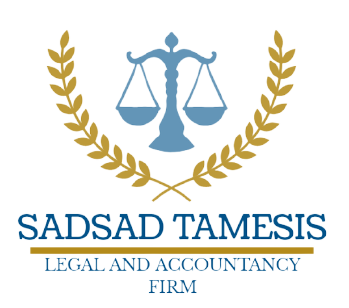What makes a quitclaim invalid? Naldo et al. v. Corporate Protection Services, Phils., Inc. (CORPS) and/or Buddy Robrigado and Benjamin Sesgundo
Facts Petitioners Domingo Naldo, Jr., Rogelio Benitez, Isidro Alfonso, Jr., Ronaldo Ledda, Bernardo Fabulare, Armando De Luna, and Nelson Villacentino (collectively, petitioners) were security guards of respondent Corporate Protection Services, Phils, Inc. (CORPS) assigned to Tarlac and Cabanatuan City. Petitioners stated that CORPS required them to work 12 hours a day, every day, including regular and special holidays and their scheduled rest days. Despite this, they claim that they did not receive their regular or special holiday pay, rest day pay, service incentive leave pay, 13th month pay, and Emergency Cost of Living Allowance (ECOLA) from CORPS. They also stated that CORPS would deduct certain amounts of money from their salaries per month for trust fund savings and as cash bond. During their conciliation-mediation conference before the NCMB to discuss their grievances, a representative of CORPS offered to pay all their money claims if the employees submitted signed resignation letters. Relying on this, the employees complied. CORPS also made them sign separate quitclaims. However, upon receiving the checks the petitioners soon discovered that they only covered the amounts of trust fund savings and cash bonds. The employees tried to return the checks, but CORPS explained that the checks for the remaining money claims, which were still being processed, would follow. This was reflected in the Minutes of the proceedings. When the employees showed up for work the next day, their supervisors prevented them, claiming they had already supposedly resigned. By the end of the month, CORPS still had not given them checks for the remaining money claims, and they were not allowed to report for duty. CORPS still did not pay the employees’ money claims as promised, and the employees were still not allowed to report for duty. The employees then filed a complaint against CORPS for nonpayment of salary and benefits and constructive illegal dismissal. Ruling The Labor Arbiter dismissed the complaint, ruling that the employees voluntarily signed the quitclaims and the resignation letters, and that there was no clear proof that they were signed under duress. They are thus barred from seeking further claims against CORPS. Aggrieved, petitioners filed a Memorandum of Appeal with the NLRC. The NLRC ruled that while the petitioners had no intention to resign, there was still no illegal dismissal as CORPS had never dismissed the petitioners in the first place. The NLRC also held that there was a mere miscommunication between the parties as to the money claims. The NLRC ordered petitioners to return to work and ordered CORPS to accept them. Both parties were not satisfied with this ruling and both filed their Motions for Reconsideration, but they were both denied by the NLRC in a Resolution. Both the petitioners and CORPS then filed their Petitions for Certiorari with the CA. In its Petition for Certiorari, CORPS claimed that the petitioners were guilty of forum shopping. Forum shopping is the term for petitioners taking their legal case in whichever court they believe is most likely to provide the judgment they want. CORPS also claimed that the petitioners were barred from filing a complaint because of their quitclaims, which are an acknowledgment that the petitioners’ money claims had all been paid. According to the CA, the petitioners were not guilty of forum shopping, as they had filed a Request for Assistance with the DOLE NCMB through the Single-Entry Approach (SEnA). All labor disputes, with certain exceptions, are required to undergo SEnA as a mandatory procedure prior to the filing of a labor complaint. Thus, availing of SEnA and later on filing a complaint before the NLRC does not amount to forum shopping. The CA also ruled that the resignation letters and quitclaims were invalid, as they were not made voluntarily. Still, the CA agreed with the NLRC that there was no illegal dismissal, and as such, the payment of back wages could not be given as a matter of course. Aggrieved, petitioners moved for reconsideration, but were denied by the CA, hence this Petition. Issues The issues for the Court’s resolution are: Ruling 1. The Supreme Court ruled that the quitclaims that the employees signed were void for being executed by CORPS with an intent to defraud. The Court reiterated that for a quitclaim to be valid, (a) there must be no fraud or deceit on the part of any parties; (b) the consideration for the quitclaim is credible and reasonable; and (c) the contract is not contrary to law, public order, public policy, morals or good customs, or prejudicial to a third person with a right recognized by law. The employer bears the burden to prove that the quitclaim constitutes a credible and reasonable settlement of what an employee is entitled to recover, and that the one accomplishing it has done so voluntarily and with full understanding. In this case, the employees signed the quitclaims with the honest belief, based on CORPS’ assurances, that they would be paid their money claims in full, as supported by the Minutes of their conciliation-mediation conference. The Minutes show that the CORPS representative expressly stated that management would reconcile the employees’ other claims. The Court found that both parties were aware that there were pending money claims to be reconciled and that the checks did not represent the entire amount due to the employees. The employees likewise did not accept the checks with the intention of forgoing all other money claims against CORPS. 2. The Court also ruled that CORPS constructively dismissed the employees. It is apparent from the facts that CORPS’ representative assured the employees that they would be paid their money claims if they submitted their resignation letters and signed the pro forma quitclaims. In the instant case, CORPS, through fraud, induced the employees into signing resignation letters and quitclaims. In doing so, CORPS attempted to disguise the employees’ dismissal as a voluntary termination of employment.Accordingly, the Petition is GRANTED. CORPS is hereby ordered to reinstate the petitions and to pay each of the petitioners their backwages; overtime pay, holiday pay, rest day






